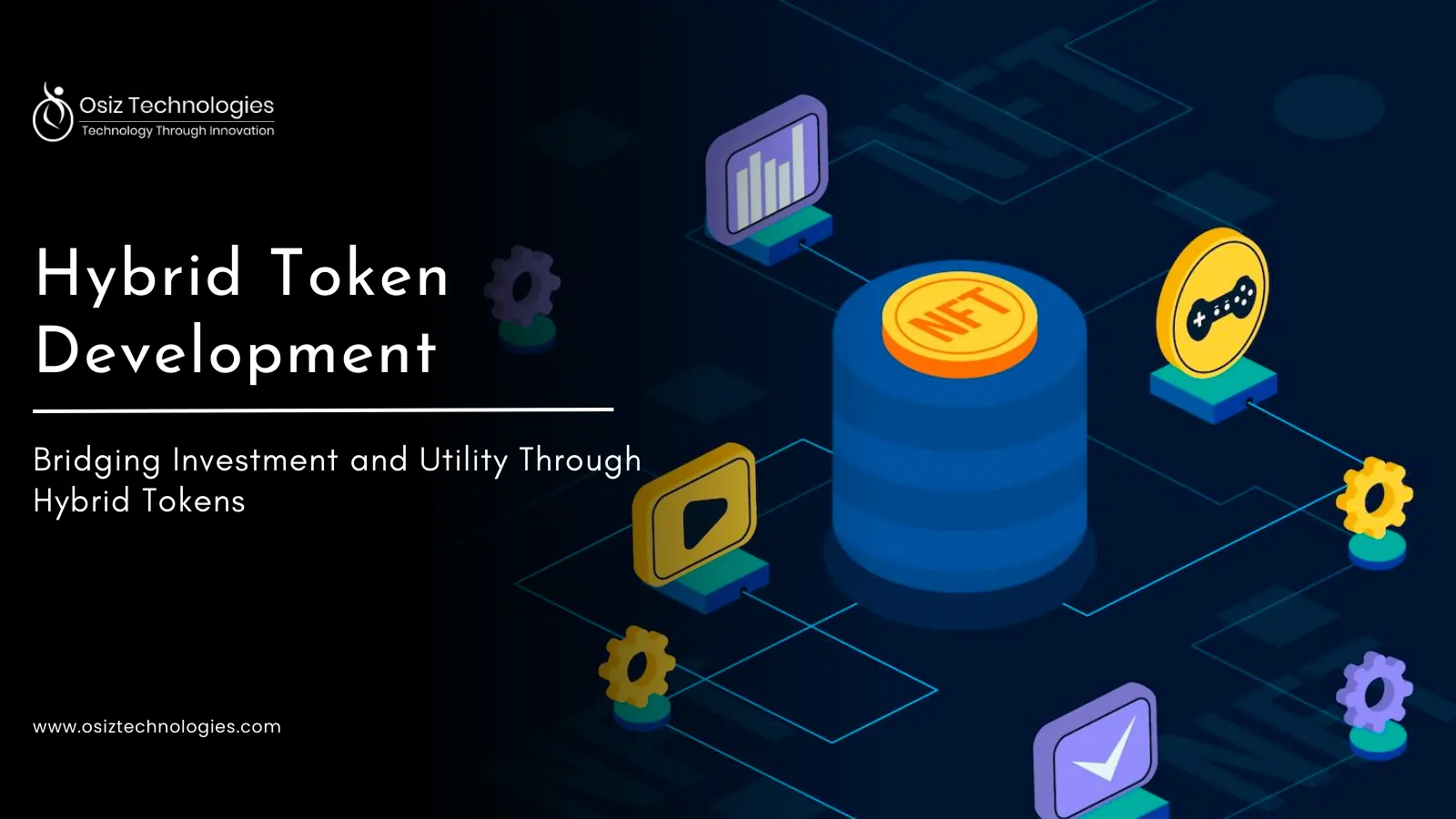AI in DevOps
AI in DevOps is the trending technology that is used by every software developer in the industry. If you are curious about AI in DevOps, it is nothing but the application of machine learning (ML) and other AI technologies to automate and improve the software development and delivery process. This covers every aspect, from strengthening security and resource management to automating testing and deployment procedures.
What is DevOps?
DevOps is considered a software development method that highlights communication and collaboration between both the operations and development teams. However, using DevOps will shorten your development cycle, boost deployment frequency, and finally deliver your product in the best quality. DevOps uses agile methodologies, constant implementation, and delivery, and finally automates the development process.
Various Types of AI Used in DevOps
At Osiz, we use various types of AI technology in DevOps. Here are the key aspects of how AI is used in DevOps.
Predictive Analytics: Analytics driven by artificial intelligence (AI) forecast possible problems, performance snags, and patterns, allowing for proactive problem-solving.
Machine Learning (ML): Algorithms for machine learning (ML) automate testing, streamline processes, and spot trends for ongoing development.
Natural language processing (NLP): NLP applications streamline team communications, and automate documentation, and log analysis.
Automation: AI-driven automation minimizes human error and increases productivity by streamlining deployment, tracking, and maintenance procedures.
Advantages of Using AI in DevOps
AI-powered DevOps has plenty of advantages that greatly advance your software development and deployment process. Check out the top advantages of using AI in DevOps.
Increased Productivity: AI streamlines development processes and optimizes resource usage by automating routine operations, freeing up teams to concentrate on key priorities.
High Quality: Software solutions are more reliable and of higher quality when flaws are found at the beginning of the development process thanks to AI-powered testing and analytics.
Predictive Maintenance: Because AI can anticipate possible system faults, proactive maintenance may be enabled, downtime can be decreased, and overall system stability is improved.
Quicker Time-to-Market: There is no doubt that one obvious way that DevOps may benefit from AI is by cutting the time it takes for software solutions to reach the market. Updates and new features may be released more quickly because of AI's ability to automate repetitive jobs and streamline procedures.
Financial Savings: AI-driven optimization streamlines procedures and resource allocation to reduce operating costs, increase scalability, and optimize return on investment.
Steps To Implement AI in DevOps
If you are looking for ways to implement AI in DevOps, you are at the right place! Let’s examine the simple steps to integrate AI in DevOps.
Step #1: Analyze Your Current DevOps
Start by examining your present DevOps procedures to see what needs to be improved. Evaluate the infrastructure and procedures that are currently in place to determine if AI integration is ready. Identify the precise problems and obstacles that artificial intelligence can solve. Involve important parties to obtain information and coordinate goals. The groundwork for an effective AI deployment is laid by this preliminary evaluation.
Step #2: Define Best Strategies
Establish precise goals for integrating AI into your DevOps procedures. Create a thorough adoption plan for AI that supports your company's objectives. Sort use cases into priority lists according to their viability and possible effect. Make a roadmap containing both short- and long-term objectives. Make sure the plan calls for quantifiable results to monitor development and achievement.
Step #3: Integrate AI in DevOps
Integrate AI platforms and technologies with your current DevOps workflows in a seamless manner. Assure that new AI solutions and existing systems are compatible and interoperable. Workflows should be automated to increase productivity and decrease human involvement. Using integrated AI capabilities, make it easier for the development and operations teams to collaborate. To take advantage of all the benefits of AI in DevOps, this step is essential.
Step #4: Train Your Team
Give your team in-depth instruction on the newest AI tools and technology. Stress the importance of best practices and ongoing education to stay current with developments. Give your employees the tools they need to successfully use AI in their regular work. To completely realize the promise of AI, promote a culture of creativity and adaptability. Continuous training guarantees that your staff will always be knowledgeable and comfortable with AI.
Step #5: Check Security and Compliance
When incorporating AI into DevOps, security, and compliance need to be properly taken into account. It's critical to make sure your AI technologies abide by relevant rules and regulations. Examine the security and compliance aspects of your AI systems in great depth. To protect AI systems from online threats, robust security measures need to be in place. You can lower risks and ensure that your AI-powered DevOps operations are secure.
Step #6: Track and Monitor Performance
Make sure AI-driven processes are operating as anticipated by keeping a close eye on them. Get input from stakeholders and users to determine what needs to be improved. Improve AI procedures and models iteratively by taking real-world performance into account. Create measures to assess the influence and efficacy of integrating AI. The key to maintaining long-term gains from AI in DevOps is consistent monitoring and iteration.
Use Cases of AI in DevOps
Leveraging AI in DevOps can help you remodel the way how your software is developed. So, here are the practical use cases of AI in DevOps.
Automated Testing: AI-powered testing instruments minimize testing time and effort by automating the creation, execution, and analysis of test cases.
Chatbots: AI-driven chatbots let developers and operational teams communicate in real-time, automate support chores, and provide self-service choices.
Continuous Integration and Deployment (CI/CD): By using advanced AI in CI/CD to optimize pipelines, speed up deployment cycles, and identify deployment hazards.
Predictive Analytics: AI examines performance indicators, forecasts abnormalities in the system, and suggests infrastructure and application enhancements.
Automated Code Review: This AI-driven tool can check the code identify errors and automate the code to review the process. Also, this will enhance the software's reliability and security.
Top AI Tools For DevOps
Many companies started using AI tools for their DevOps project. So, here are the top AI tools that are used to create robust DevOps software.
- Jenkins X
- GitLab
- Kubernetes
- TensorFlow
- ELK Stack
The Future Of AI in DevOps
Incorporating AI in DevOps provides immense potential for transformation and innovation in software. With that, you can experience several AI-powered technologies in the future. For instance, AI-driven systems can identify and fix problems on their own, greatly lowering the requirement for human interaction and downtime. These developments will transform the way DevOps teams handle and deliver software by increasing productivity, decreasing downtime, and optimizing operations. Adopting AI in DevOps will be essential to maintaining competitiveness in the ever-changing digital market.
Why Choose Osiz For AI in DevOps?
Osiz is a top-tier AI development company that provides various AI-powered services organically. Modern technology needs modern AI algorithms to face any challenges within their organizations. At Osiz, our experienced AI developers keep on learning new AI technologies to create productive DevOps software. With the help of our AI developers, you can stay ahead of your competitors effectively. So, it’s now time to leverage Osiz’s full potential of AI in DevOps.
Listen To The Article












